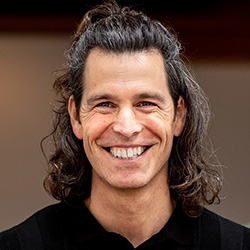

Search Results: conflict
-
Shared story has been a way for groups to unite in opposition to a common enemy. But more divergent and virulent beliefs/stories swirl through the internet and social media, facilitating people to polarize against one another. So notice when you're caught in a polarizing story; try shifting focus to observing your mind; somatic presence; underlying commonality; consciousness as universal need, energy, and spaciousness; and the natural compassion and generosity that flow from this.
-
Exploring how to share NVC in a school environment where others may not yet understand its value.
-
Why is it so difficult to change our patterns even when we want to, even when we experience shame or despair about them? Arnina Kashtan offers some of the common pitfalls and concrete steps to overcome them in the future.
-
Less than 2 weeks ago from the time I’m writing this letter, Hamas militants crossed from Gaza into Israel and killed more than 1,300 people, most of them civilians. Israel then retaliated and killed over 3,000 Gazans, most of them civilians. The death rate continues to increase every day.
-
Trainer Tip: Without knowing our feelings, its harder to live fully present, take care of ourselves, and make sound decisions. If its difficult for you to know what you feel and to express your feelings, consider reviewing a list of feelings, practice expanding your feelings vocabulary, and naming your feelings.
-
Feelings and Needs form the cornerstone of Nonviolent Communication (NVC), offering a profound framework for cultivating empathy, compassion, and authenticity in our interactions. This comprehensive 9-page Feelings and Needs Reference Guide is designed to support you in integrating these vital concepts into your daily life.
-
Feelings and Needs form the cornerstone of Nonviolent Communication (NVC), offering a profound framework for cultivating empathy, compassion, and authenticity in our interactions. This comprehensive 9-page Feelings and Needs Reference Guide is designed to support you in integrating these vital concepts into your daily life.
-
Gregg Kendrick and Marie Miyashiro share the importance of nonviolent communication and needs awareness at multiple levels of organizational structure —individual, interpersonal, and organizational.
-
Dear friends, It’s quickly moving into Fall here in the northern part of the world. The leaves are turning, there’s a crispness to the air especially in the morning and evenings, and there’s a certain earthy scent that emanates from the park across the street from our house.
-
- Discover the healing magic that comes from welcoming pain rather than avoiding it
- Learn how to navigate ‘healing dialogues’ when hurt or pain is present
- Increase your empathy/honesty skills and your ability to navigate painful conversations
- Embrace pain as a precious life-guiding force that teaches us how to be together!
-
Hello,
I’m Iris Bawidamann. When Mary reached out to me asking if I’d write this letter, I sat for some time meditating on what is alive for me and what I want to share with you… This is what surfaced for me… Fear sits with me—on my shoulders, in my chest. A familiar presence I consciously keep in check so it doesn’t take over. Watching global politics, conflicts, and rising polarization, I often feel overwhelmed. The world is shifting.
-
- Adapted from Marshall’s bestselling book and taught in his own words
- Learn how to utilize empathy to safely confront powerful emotions
- Discover how to overcome the blocks to compassion
- Open to your natural desire to enrich the lives of those around you!
-
- Learn the essentials of NVC from its founder, Dr. Marshall Rosenberg
- Discover how to connect with others with empathy, integrity, and peace
- Understand the origins of NVC and how to apply it within yourself and in your life
- Experience how empathy supports healing in your most intimate relationships— and in the world at large!
-
Discover how fostering strong attachment and connection with your child can lead to fewer conflicts and more harmonious interactions. Ingrid Bauer offers practical guidance on using empathy, self-connection, and consistent care to create a secure and loving environment for your child.
-
- Discern what is preventing your communication style from being effective
- Create a communication style that works
- Resolve everyday conflicts and misunderstandings
- Create a deeper sense of connection, trust, and cooperation
- Heal old wounds between you and others, as well as within yourself
- Be the leader and contributor you want to be in any situation
-
Miki Kashtan helps you move past fear and build skill in making clear, confident requests.
-
Explore what blocks us from speaking truth and how honesty builds trust and growth.
-
Discover how replacing "niceness" with honesty, passion, and compassion restores aliveness.
-
Exploring how stories and unmet needs each influence the cause of our feelings in NVC.
-
Master fear through exercises, empathy, creativity and the power of truth telling.

Quick Links
Subscription Preferences
Stay In Touch!
Looking for ways to keep up with NVC Academy news, get special offers, free resources, or words of inspiration? Here are five ways to stay engaged:

















